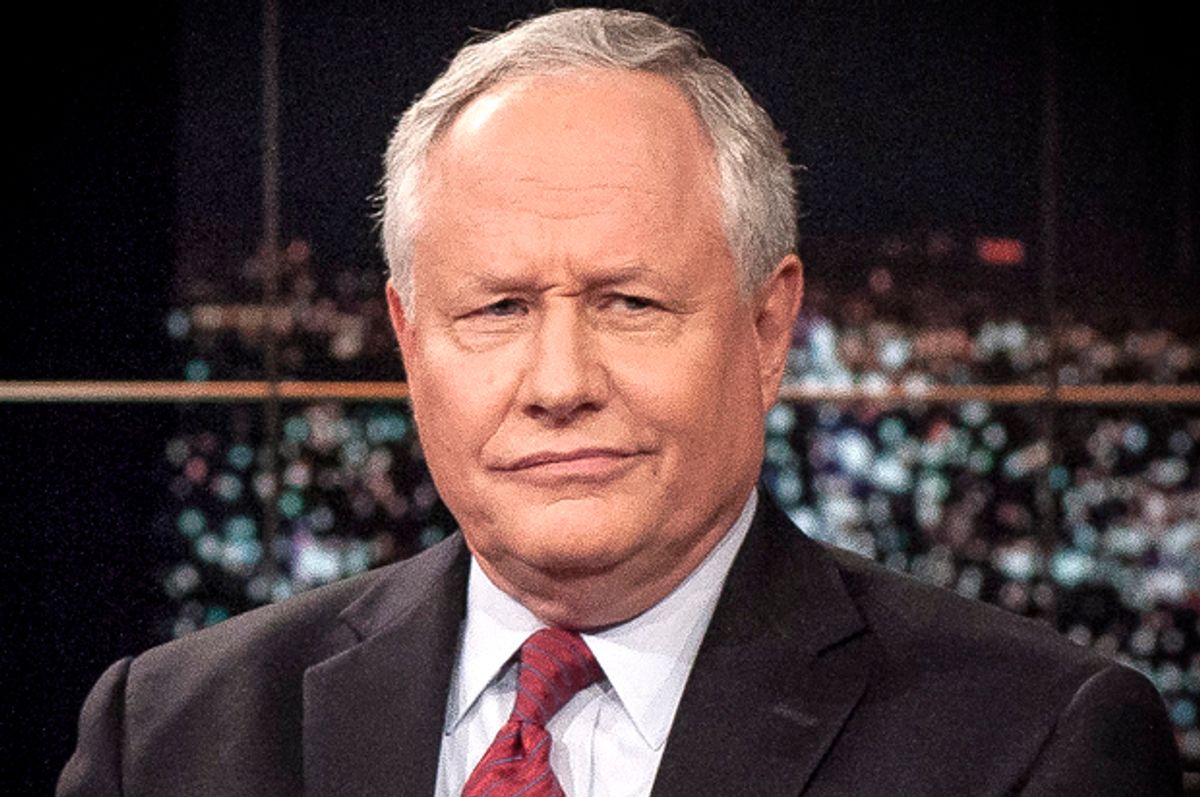One of the great failures of accountability in the last decade or so is the fact that William Kristol is still granted venues to pop off on the state of international affairs. The guy gets literally everything wrong, but he has a special knack for being catastrophically wrong when it comes to wars, of which he is a huge fan. “The battles of Afghanistan and Iraq have been won decisively and honorably,” Kristol wrote in the Weekly Standard in April 2003. No one needs an explanation for how incorrect that statement was, but perhaps the best proof of its falsity is the fact that Kristol declared victory in Iraq again five years later.
With Iraq once more at the center of our foreign policy debate, Kristol – hired by ABC News as a contributor earlier this year – is again agitating for the U.S. to commit huge quantities of men and materiel to the region to combat the threat posed by ISIS, the terrorist group currently threatening the country’s northern provinces. In response to the group’s brutal murder of journalist James Foley, President Obama condemned ISIS in a televised statement: “From governments and peoples across the Middle East, there has to be a common effort to extract this cancer so that it does not spread. There has to be a clear rejection of this kind of nihilistic ideologies. One thing we can all agree on is that a group like ISIL has no place in the 21st century.”
For Kristol, this statement was “appalling.”
The president is appalled. Indeed he said this afternoon that "the entire world is appalled by the brutal murder of Jim Foley by the terrorist group, ISIL." The act of violence that killed Jim Foley, the president continued, "shocks the conscience of the entire world."
What happens in the age of Obama to a group that does something that appalls and shocks the conscience of the entire world?
Nothing.
“Nothing” is a curious term for Kristol to use, since the administration has spent the past two week dropping explosives on ISIS and assisting Kurdish militias in halting and pushing back the terrorists’ advance. Airstrikes were conducted on ISIS just yesterday. Their barbarous act of violence against an American journalist was their response to the air campaign the U.S. is conducting against them. You can criticize the extent of the action taken by the president, but it’s not “nothing.”
Kristol doesn’t see it that way:
It's nice that "one thing we can all agree on is that a group like ISIL has no place in the 21st century." But the 21st century has a lot of years left. It would be nice if the president of the United States were acting to see to it that ISIL has no place in the world now.
At this point, you’re probably wondering what (armchair) Gen. William Kristol would do to address the ISIS threat. Well, he offered his recommendation in another blog post: send 10,000 U.S. troops to Iraq to “annihilate ISIS.” (He borrowed this strategy from Max Boot, another war agitator who feels no remorse and suffers no consequences for being so terribly wrong on Iraq in 2003.)
Apparently it’s just that simple. It took 100,000+ U.S. troops years to make any progress against an entrenched terrorist element in Iraq, but surely a fraction of that number will have much greater success.
As you probably surmised, Kristol (and Boot) are grossly understating the military commitment required, and vastly overstating the promise of success. Foreign policy analysts who aren't constantly wrong have examined the situation and pointed out the impossibility of a neat-and-tidy quickie war against ISIS:
If destroying ISIL becomes the near-term policy goal—which seems the likely outcome of saying you are going to “roll back” the group—then 10,000-15,000 troops vastly understates the true commitment, which will actually require years, direct military action on both sides of the Iraq/Syria border, tens (if not hundreds) of billions of dollars, and many more than 15,000 troops. ISIL is an inherently resilient organization—look how far they have come since getting “rolled back” during the Surge in 2007 when 150,000 American troops were occupying the country.
[…]
No one has offered a plausible strategy to defeat ISIL that does not include a major U.S. commitment on the ground and the renewal of functional governance on both sides of the Iraqi-Syrian border. And no one will, because none exists. But that has not prevented a slew of hacks and wonks from suggesting grandiose policy goals without paying serious attention to the costs of implementation and the fragility of the U.S. political consensus for achieving those goals.
Hackish foreign policy hawks offering unrealistic military strategies without a firm understanding of what’s actually going on in the Middle East? Sure sounds familiar! Now if only we could figure out some way to keep these discredited hacks off television.



Shares